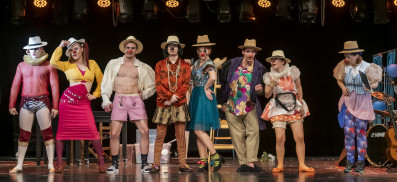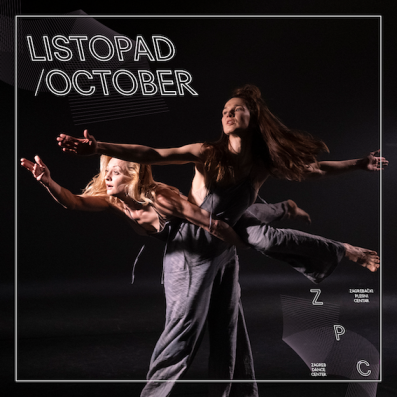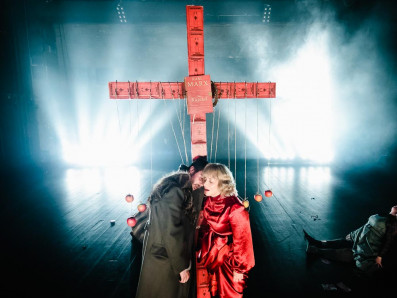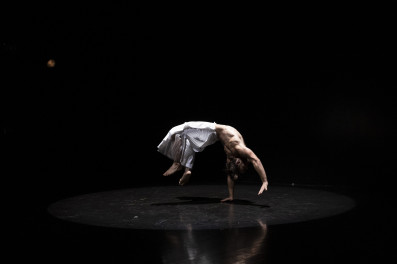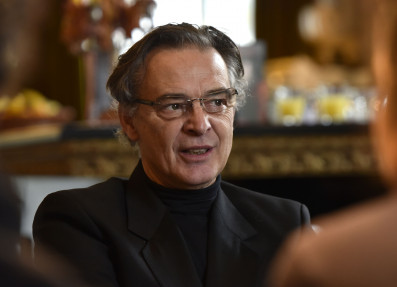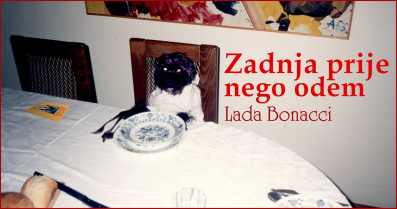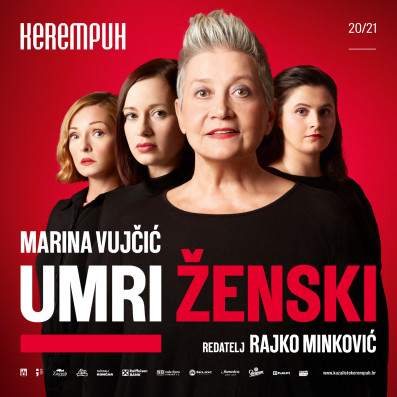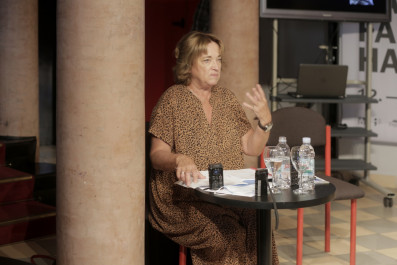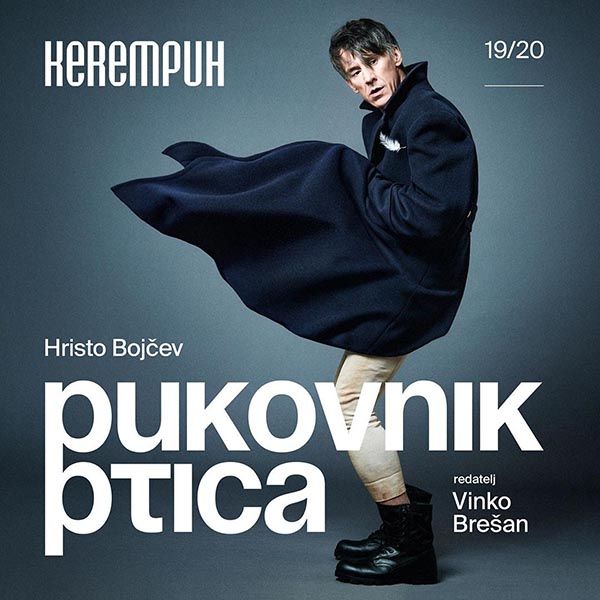
Kerempuh Salutes Colonel Birds
Review of the Hristo Boytchev´s production at Kerempuh Theatre
The universe is everlasting and no one has been everywhere and proved that the wonderful world does not exist.
(Fetisov, Colonel and The Birds by Hristo Boytchev)
When Hristo Boytchev started writing his first play (That Thing) under the staircases waiting for the results at the Academy in Sofia, nobody knew what a singular playwright is being formed in Bulgaria. Together with perhaps Goran Stefanovski from Macedonia, Boytchev marked a significant turnaround in 20th ct. writing, as his disillusionment with the system, his observations of human character or his understanding of fate proved themselves as theatrical magnitudes, both in terms of style and staging. There is little to no solace to be found outside of ourselves, the historiography is turned upside down and marked almost only perchance, the individuals often met with an absurdity so illustrative it comes alive with the first lights. More often than not we find his lines shared amongst some madness or little sense (Orchestra Titanic, General Hospital or Colonel Birds) of the whole, but it is to be felt that reality or objectives are found as fragmentary and as a pure idea. His people are the invisible not because they are weak or, indeed, belittled; they are invisible because they bring about the reminiscence of the world that is far more broken, closed off and tied up in silence, more than a madman´s bed. Boytchev´s sardonic meta-theatre offers much of the allegory aimed at the government without making the language too rehearsed; the gravity of our modern society is weighed as far as our wars, poverty and empty –isms are concerned, so who are we to argue there are too many madmen walking around if the madness only reflects what has been done unto a healthy mind? Even the most basic of markings are brought into question-safety, sufficiency, tradition, and modernity, homeland, family, resurrection; everything is propped amongst the shadow and some smoke. In the case of Kerempuh´s latest play directed by Vinko Brešan- pillars of monastery-clinic and wood, a failed actor, a thief, a custom service officer, a musician, a former corporal found impotent, a man who fears being stepped on, because he is too small. Oh, and a Russian Colonel who spends a good third of the play in a kind of benevolent stupor, who lost his family in the bombing.
Set upon the backdrop of Balkan War of 1995., a Doctor (Borko Perić) is sent to an asylum sharing a name of 40-odd Martyrs, there to be met by its inmates. Matei (Vedran Mlikota) wears a red signaling light and spends his days under the bed as he fears someone will crash him, he is that small. Pepa (Branka Trlin) is the only female inmate, a former customs officer who can multiply how many male drivers she had met over the 15 years of her work, adding upon the number of people who must know her by word of mouth. Daud (Vilim Matula) is sadly impotent which gnaws him deeply as he had fathered only 6 children. Hacho (Nikša Butijer) is a deaf actor translating every evening at the same time an episode of a soap opera as News to his fellows, with Kiro (Marko Makovičić) as thievery, a comical vagabond who is ready to be no longer a criminal but Logistical Aid, when the time comes. Fetisov (Drazen Čuček) goes by silently until someone calls him a Colonel, whereupon he is awoken from a kind of trance we find him in as we take seats already witnessing the bunch going in and out of stage with only some white overhead ribbons to shape the playing area. On the stage some screeching beds, a few covers, and a TV, apart from a welcoming addition of Jordan the Musician (Mate Matišić), who brings about a colorful, minimal soundscapes, what with his drum to boost the militaristic walk or a falsely played tune on the tiny wooden flute.
As the mild young doctor is proven to be a morphine addict and most of the actors offering the partial sidelines of their character´s path, the story unfolds in a decent unison. Madness is real here only as a shared medium; a survivalist skill that questions the logic of the Universe and bounds we are instilled with from a young age into our maturity. Dražen Čuček offers his leadership both mentally and physically, with his presence firmly matched in stoicism as he reins the untamed passions of others into one goal-to form an alliance with UN and NATO, to enter European Integrations and finally move through four borders and reach Strasbourg. What with an empty paper as their founding act, a simple ornithological ring mistaken for a cyphered message or secret voting spent entirely as a parody, Boytchev demasks our sociological and political rituals into a kind of a play for ghosts. Stinging solely to provoke our judgment on gray areas, those who remain unnamed on the peace agreements, for example, neither Boytchev nor the Inmates play for our endearment, though we grow to love them, even if we might find some comic relief in some scenes. Somehow, Colonel lift us up into the world of possibilities where our souls are still alive and speaking, where we might soar with our eyes closed and fear exist only as an association to a previous life. Indeed, Boytchev offers a world entirely self-sufficient and prone to transformation, whereby it also exists and an observant organism aware of its numb limbs and, in the time of migrations and useless empires that scorch us with their painted democracy of horror, Kerempuh´s play made a timely revival.



